Our story
Have you heard of Malawi, the warm heart of Africa?
![[사진1]공동농장에서 작물을_수확한 말라위 주민들.jpg](https://miral.org/upload/editor/20230925095154339335200.jpg)
Malawi residents who harvested crops at a farm club
In Malawi, which is known as ‘The Warm Heart of Africa’, you can feel warm temperatures, see beautiful natural scenery, and meet Malawians with warm eyes and hearts. Most Malawian people make their living through agriculture. Among them, we would like to introduce the Miral Welfare Foundation's farm club, which provides great hope for these people.
Malawi, where 90% of the population engages in agricultural activities
Malawi is a landlocked country located in South-Eastern Africa, bordering Zambia and Tanzania. In general, the temperature is warm, making it suitable for harvesting corn and staple foods twice a year. And its average altitude, including the capital Lilongwe, ranges from 900m to 1,200m above sea level (Korea's average altitude is 448m).
The 90% of Malawi's population makes a living from agriculture. Although the warm climate allows for double harvesting, the majority of Malawi's farmland relies on rainy-season farming. Rainy-season farming means growing crops during the rainy season. Malawi's rainy-season lasts from December to April. During this period, Malawians plow their fields and plant seeds to grow corn, peanuts, other,. which will sustain them throughout the year.
![[사진2] 말라위우기농업.jpg](/upload/editor/202309250955362032450721.jpg)
Malawi rainy-season agriculture
Malawi residents need irrigation facilities for dry-season farming
In order to farm during the dry season (May to November) when there is no rain, an irrigation facility (a facility that supplies water to the farm) is required. There are several types of irrigation systems used in Malawi, including solar and pedal pumps.
The price of these irrigation facilities varies between 400,000 Korean won and 2 million Korean won, but with a GDP per capita of $645 (as of 2022) and more than half of the residents living below the absolute poverty line, it is difficult to purchase irrigation facilities on their own. Therefore, less than 5% of smallholder farmers in Malawi engage in dry-season agriculture using irrigation facilities (FAO, 2018).
*Absolute poverty: Poverty at a level where even the minimum necessary for human survival cannot be maintained.
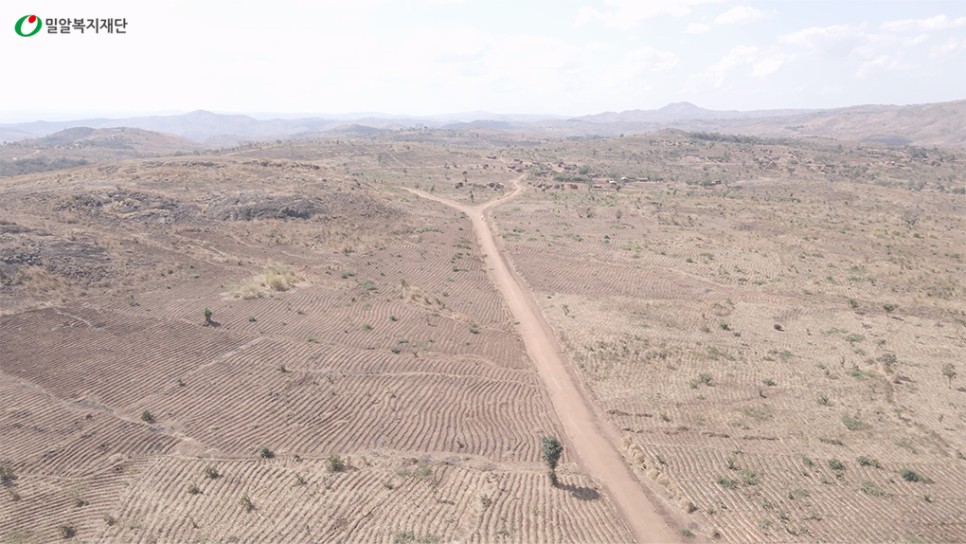
Malawi dry-season agricultural land
From May to November, Malawi faces a period of withering
So, how do Malawi residents survive during the dry season? During the dry season, Malawi's farmland dries up and nothing can be planted during this time. Residents manage to survive by engaging temporary work in the village, such as child care or working as laborers on large farms. Due to these circumstances, achieving a balanced nutritional intake is challenging, and eating two meals a day is not common. Moreover, this year, 22% of Malawi's total population is experiencing a severe food crisis due to the effects of COVID-19 and war between Ukraine and Russia(IPC, 2023).
Community farm for household of people with disabilities
Starting in 2021, the Malawi branch of the Miral Welfare Foundation has been operating a communal farm for families with disabilities in the T/A Mazengera region, in cooperation with KOICA(Korea International Cooperation Agency). A total of 225 families are organized into 27 farm clubs and participate in agricultural activities throughout the year.
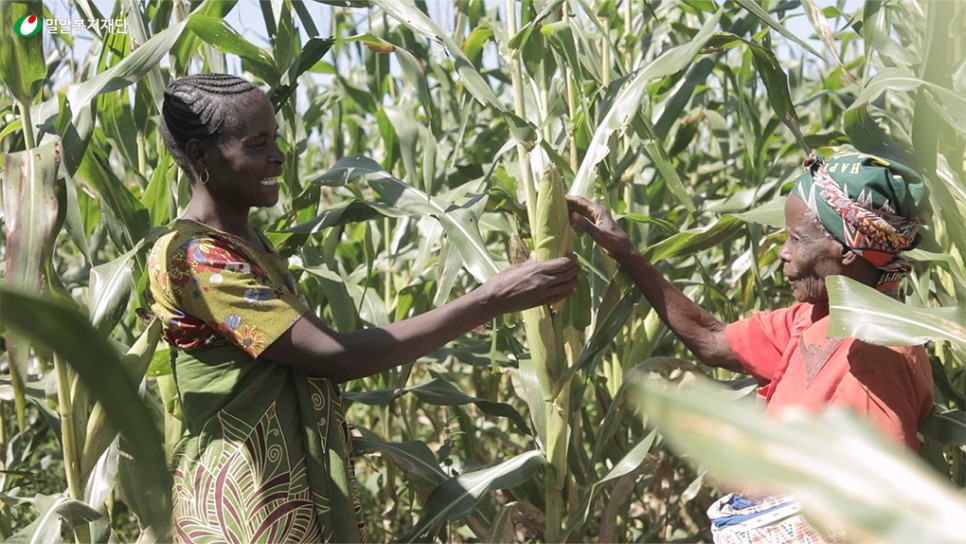
The farm clubs participants are harvesting corn at a farm club in Malawi.
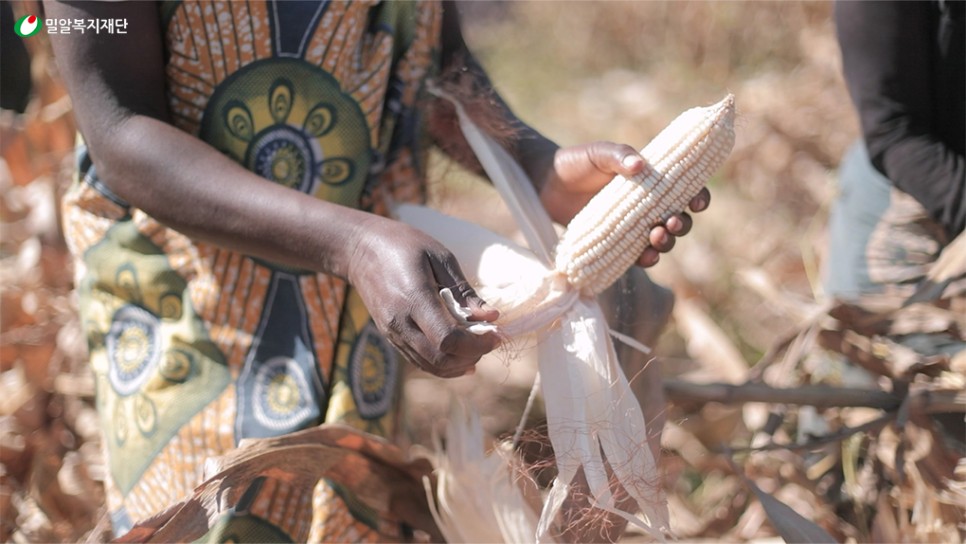
The farm clubs participants are peeling harvested corn
The Miral Welfare Foundation provided farmland, seeds, fertilizers, irrigation facilities, etc. through farm clubs to families with disabilities who were unable to make a living through agriculture due to lack of agricultural inputs. In addition, we assist farm participants in achieving higher agricultural yields and profits through capacity-building training, covering topics such as how to manage each crop, how to sell the harvest at a suitable price, and agriculture practices in response to climate change. Moreover, we conduct monthly monitoring with the Malawi Agriculture Ministry's AEDO (Agriculture Extension Development Officer) to improve quality management by predicting crop condition and harvest time.
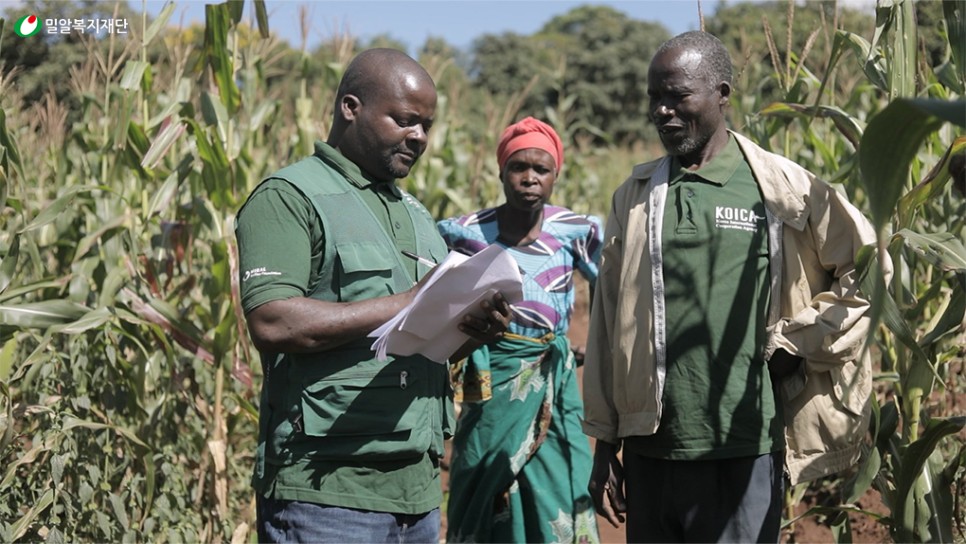
Regular monitoring of communal farms
Changes through solar irrigation facilities
The biggest change that occurred by farm club is that farming can be done all year round using solar irrigation. The Miral Welfare Foundation has provided environmentally friendly and fuel-free solar irrigation facilities to 27 farms. The farm club created farmland near a flowing river and connected solar irrigation facilities from the river to the farmland, making it possible to grow and sell corn and other crops even during the dry season.
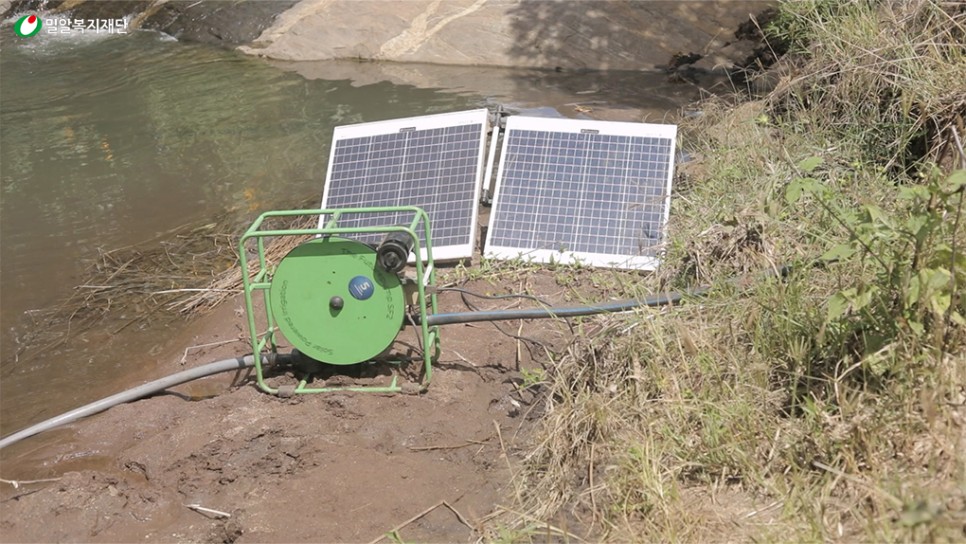
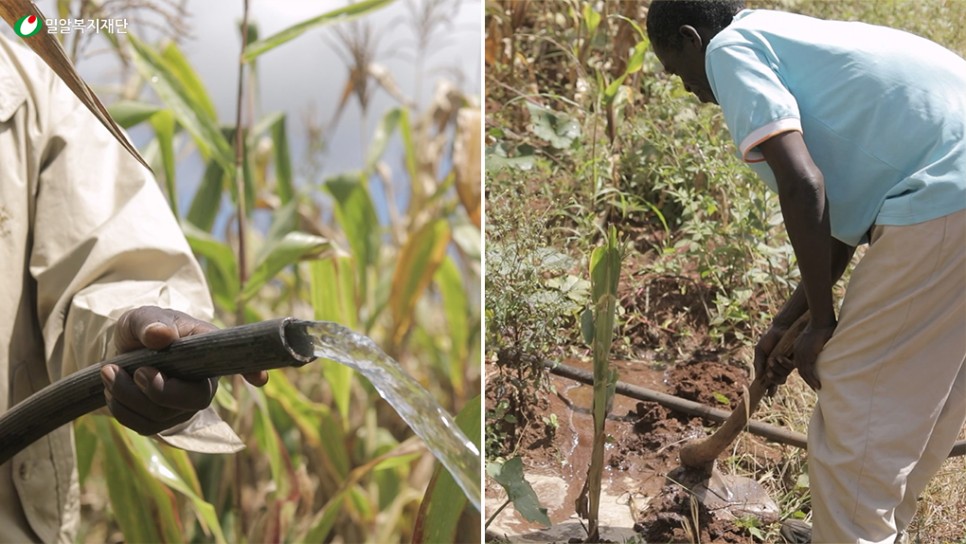
The use of solar irrigation facilities
The Miral Welfare Foundation investigated agricultural profits before and after the project to observe changes in the lives of the farm club’s participants. Before participating in the farm, the annual agricultural profit per person was 30,963mk. However, after engaging in the project, the income increased to 42,499mk for the first harvest of dry season farming in 2021, 51,434mk for rainy season farming in 2022, and 81,122mk for dry season farming in 2022. This is an increase of up to 162%. The 2023 rainy season agricultural harvest is still being stored in granaries to be sold at better prices, with high profits expected.
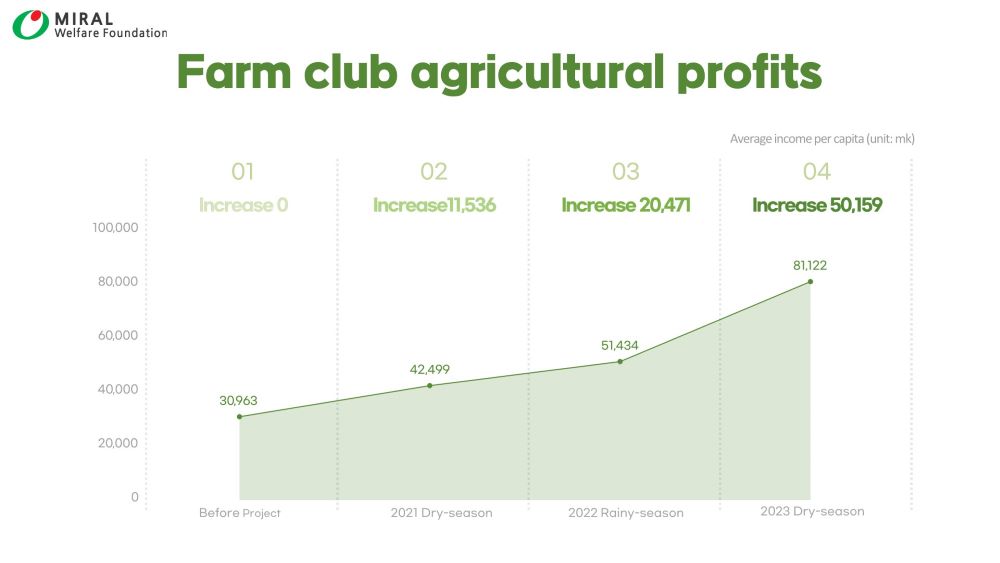
Malawi Branch farm club
Farm clubs, the hope of Malawi residents
The Miral Welfare Foundation's farm club has established an environment conducive to year-round farming through solar irrigation facilities and diverse supports. Consequently, the agricultural income of farm participants has increased significantly. These achievements go a long way in improving the livelihoods of farm participants and inspiring hope in many more Malawians. The Miral Welfare Foundation will continue to work with local community to change the lives of families with disabilities.
![[사진10]_말라위_공동농장.jpg](/upload/editor/202309251031341814125631.jpg)
The corn is growing well in the farm club
“ Previously, people depended on rainy-season farming and had food shortages for more than six months a year.
However, now it is possible to harvest twice a year through farm clubs.
I could send my children to school, buy clothes, and provide food for my family throughout the year.
I am very grateful to the Miral Welfare Foundation ”
-Maliko Chitsamba